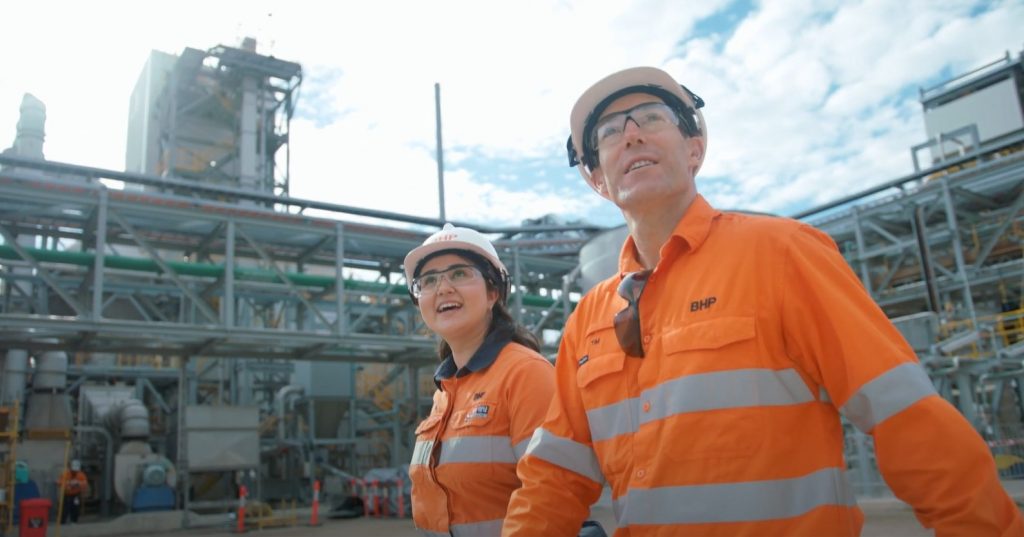
BHP is Australia’s largest mining company and today announced a new supply agreement with Tesla. BHP’s business unit Nickel West is located in Western Australia which offers a fully integrated mine-to-market nickel business.
There are more than 2500 employees and contractors, as part of operations in open-cut and underground mines, concentrators, a smelter, and a refinery, that are located in Western Australia.
While the details of the deal were not disclosed, in June this year, Tesla chair Robyn Denholm said the company would spend in the order of $1 billion this year on minerals from Australia.
Typically mining companies are seen as contributing to greenhouse emissions, so it may seem strange for the renewable energy-focused Tesla, to partner with BHP. In reality, BHP’s Nickel West operations are evolving operations to be cleaner. In February, BHP announced their Nickel refinery would leverage Merredin Solar Farm, the largest in Western Australia to reduce emissions from electricity by 50% by 2024.
Western Australia is home to some of the largest Nickel deposits in the world, which when extracted will be leveraged by Tesla to create batteries for their vehicles and storage products.
During Tesla’s Battery Day event last year, Elon Musk provided a breakdown of the battery chemistry they plan on using in future products, with Nickel playing a part in Model S, Model Y, Model X, Cybertruck and Semi vehicles, as well as Powerwall battery storage for homes.
Iron-based battery cells will be used in the Model 3, Megapack and the upcoming Tesla compact, due around 2023 which is said to have a starting price of US$25,000. These applications for battery cells, clearly don’t require the same energy density of the products on the upper ends of the spectrum.


At the time, Musk asked the world to produce more Nickel to meet their aggressive growth plans of 50% per year through the next decade.
With the signing of this new deal with BHP, they are expecting to see a 500% growth in their business over the next decade.
This new deal does create a strange situation. If you buy a Tesla in the future, chances are the Nickel (and some lithium) will be dug out of the ground in Australia, shipped to China to make batteries in Gigafactory Shanghai, integrated into cars and stationary storage, then shipped back to Australian customers.
“Demand for nickel in batteries is estimated to grow by over 500 per cent over the next decade, in large part to support the world’s rising demand for electric vehicles.
We are delighted to sign this agreement with Tesla Inc., and to collaborate with them on ways to make the battery supply chain more sustainable through our shared focus on technology and innovation.”
BHP Chief Commercial Officer, Vandita Pant
In addition to the supply agreement, BHP and Tesla Inc. will collaborate on ways to make the battery supply chain more sustainable, with a focus on end-to-end raw material traceability using blockchain; technical exchange for battery raw materials production; and promotion of the importance of sustainability in the resources sector, including identifying partners who are most aligned with BHP and Tesla Inc.’s principles and battery value chains.
BHP will also collaborate with Tesla Inc. on energy storage solutions to identify opportunities to lower carbon emissions in their respective operations through increased use of renewable energy paired with battery storage.
“BHP produces some of the lowest carbon intensity nickel in the world, and we are on the pathway to net zero at our operations. Sustainable, reliable production of quality nickel will be essential to meeting demand from sustainable energy producers like Tesla Inc.
The investments we have made in our assets and our pursuit of commodities like nickel will help support global decarbonisation and position us to generate long-term value for our business.”
BHP Minerals Australia President, Edgar Basto






